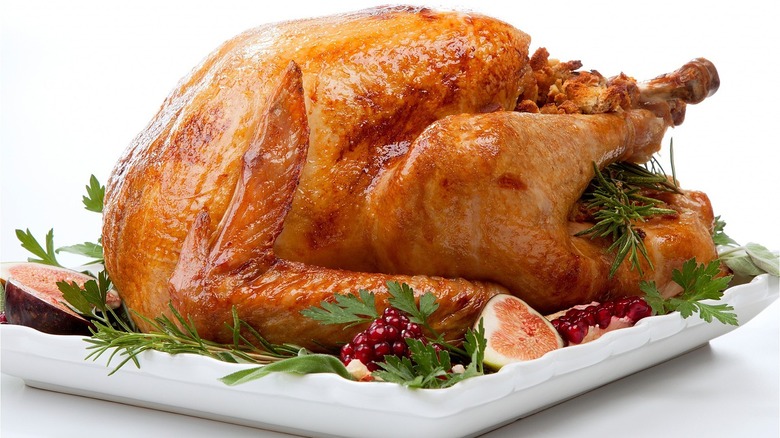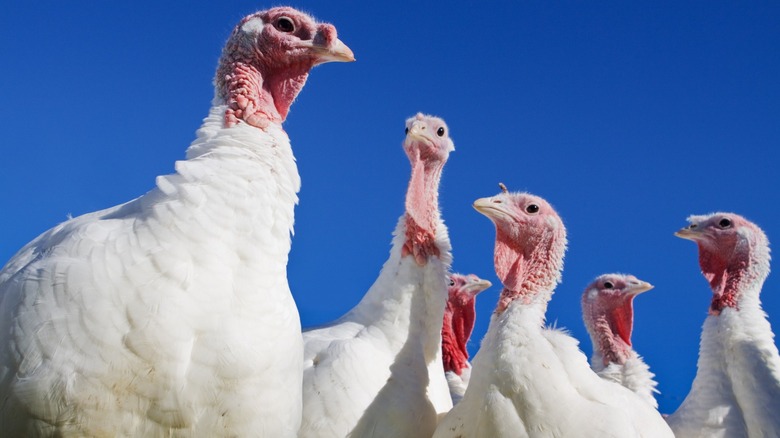Bird Flu Has Caused Huge Reduction In Turkeys But Can Be Prevented, According To Expert
You may have noticed that your Thanksgiving turkey cost a bit more than it did in previous years. That's because a wave of avian flu has killed nearly six million of the birds, depleting farms and driving up prices by around 20%, the Washington Post reported. The total turkey death toll, which hovers around 6 million, now amounts to roughly 3% of the country's total turkey output.
Speaking to Mashed, Dr. Teresa Morishita, Professor of Poultry Medicine & Food Safety at Western University of Health Sciences, said infected wild birds are the predominant cause of the bird flu seen on poultry farms. As wild species migrate over farms in the colder months, contaminating them with their droppings, they infect other birds with the disease. The Centers for Disease Control points out that there is little risk for humans involved in the bird flu, but it spreads rampantly in farm settings. However, Dr. Morishita said producers can take measures to prevent the spread and outbreak going forward.
Understanding flocks, bird flu will help contain spread of illness
A wave of avian flu has decimated more than 50.5 million birds, including a large number of turkeys, The Washington Post reported, and experts are urging farmers to keep an eye out for signs of the disease.
Dr. Teresa Y. Morishita DVM, MPVM, MS, PhD, DACPV, an Professor of Poultry Medicine & Food Safety at Western University of Health Sciences, explained to Mashed that stopping the spread of bird flu starts with understanding the disease. She noted that wildfowl are the main source of outbreaks, so producers of poultry should shield their birds from the droppings of their wild relatives.
"What is important right now is that it is the fall season [and] with the fall migration of birds ... we see a large number of migratory waterfowl, and with this large migration we have to try and minimize exposure of our domestic flock with the wild waterfowl during this high-risk season," Dr. Morishita said.
She also urges producers to pay close attention to their flocks, particularly during the fall season. "We should be familiar and be able to recognize when they are not feeling well or when they are sick," she said. She also suggests calling a veterinarian or your state agricultural department at the first sign of illness. Additionally, Dr. Morishita recommended that people who hunt or interact with wild birds should be careful to change their clothes and sanitize their skin before coming in contact with domestic poultry.

